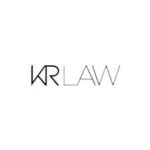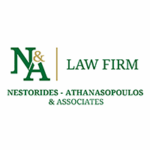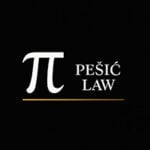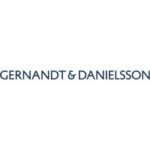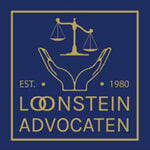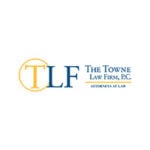-
What is the legal definition of gambling?
The Swiss Gaming Act does not define “gambling” as such. It defines “money games” in Article 3(a) as games in which a prize or something of monetary value can be expected in exchange for a stake (money or money’s worth) or by the conclusion of a legal act or transaction.
-
What legislation applies to gambling? Please provide a summary of the legal/regulatory framework.
The legislative overhaul that entered into effect in 2019 brought significant changes to the Swiss gaming legislation and replaced all formerly applicable federal gaming laws. The legal framework consists of:
Primary Law
- Gaming Act (Geldspielgesetz) of 29 September 2017, which applies to all games of chance and games of skill that involve consideration and prize.
Secondary Law
- Gaming Ordinance (Geldspielverordnung) of 7 November 2018
- Casino Ordinance EPDJ (Spielbankenverordnung – EJPD) of 7 November 2018
- Money Laundering Ordinance EJPD (Geldwäschereiverordnung – EJPD) of
7 November 2018 - Money Laundering Ordinance ESBK (Geldwäschereiverordnung – ESBK) of 12 November 2018.
These federal laws were further implemented in revised cantonal laws.
-
Which body/ies regulate gambling?
The Federal Gaming Board, ESBK, is the regulator in the casino sector. The Swiss Gambling Supervisory Authority, Gespa, is the inter-cantonal regulator in the lottery and betting sector and to some extent in the skill gaming sector. The EJPD (Federal Department of Justice and Police) holds general co-ordination and overseeing powers of the regulated gaming market. Cantonal supervisory authorities also hold certain regulatory powers notably in regard to so-called small-scale games.
-
Are licences available? If so: a) What is the duration of a licence? b) What types of licences are available? c) Are there different types of licences for B2C and B2B operators? d) Do software suppliers need to be licensed?
a. What is the duration of a licence?
With regard to so-called large-scale games, the operator’s licence and game authorisations (Veranstalter- und Spielbewilligung) may be limited in time and renewed (e.g., the online forms of lottery, betting and skill games); the same is true for small-scale games (Kleinspiele) (e.g., small poker tournaments).
According to Article 12 of the Gaming Act, the licence for casino operations is valid for 20 years. In special circumstances, the federal government may provide a licence for a shorter or longer period. It is noteworthy that there is no fixed licensing window for online licences and that, accordingly, casinos can apply for an online extension of their licences at any point in time.
b. What types of licences are available?
Cf answer under pt. 4. a.
The law distinguishes large-scale games (e.g. online lottery), small-scale games (e.g., small poker tournaments) and casino games (e.g., bricks-and-mortar offer).
c. Are there different types of licences for B2C and B2B operators?
Legally speaking, there are no licences for B2Bs. International B2Cs and B2Bs can enter into business agreements with domestic casinos and the public lotteries. These partners do not fall under a licensing requirement. However, if they are considered as ‘important business partners’, they will need to fulfil the so-called good reputation criterion.
d. Do software suppliers need to be licensed?
There is no licensing regime as such for software suppliers. For platform providers the good reputation criterion for ‘important business partners’ applies. Game suppliers by contrast do not qualify as important business partners.
-
Are any types of gambling products prohibited?
Swiss gaming law allows in principle for the full range of gambling products. Yet, these products fall in different regulatory sectors (casino; lottery and sports betting; skill gaming).
-
What is the headline application procedure? Please include any eligibility and other application requirements, including approximate application costs and any need to establish a local presence.
According to Article 8 of the Gaming Act, a licence for casino operations may be granted in the following circumstances.
- The applicant:
- is a public limited company under Swiss law and its share capital is divided into registered shares;
- presents a security concept and social concept;
- submits economic viability calculations that credibly show that the casino is economically viable;
- sets out the measures to be taken to create the conditions for the proper assessment of the casino duties; and
- presents the economic benefits of the casino for the region in a report.
- The applicant and its main business partners, as well as their beneficial owners and the holders of shares and their beneficial owners, have a good reputation and provide a guarantee of proper business conduct and independent management.
- The applicant, the shareholders, the beneficial owners of the shares, and, at the request of the ESBK, the most important business partners have sufficient funds of their own and can prove the lawful origin of the available funds.
- The by-laws, the organisational structure, and the contractual obligations guarantee the proper and independent conduct of the casino business.
- The canton and municipality, in which the location is situated, support the operation of a casino.
Large-scale games such as lotteries, sports betting, and skill gaming require inter-cantonal authorisation by Gespa. Small-scale games only require authorisation by the respective cantonal authority. The cantons have granted exclusive rights to two public monopolies in the lottery and sports betting sector and Gespa thus cannot grant further licences to other applicants. For international B2Cs, the conditions outlined under Article 22 of the Gaming Act in relation to large-scale games are accordingly of interest primarily to online skill gaming operators. Such authorisation can be granted if the operator:
- is a legal entity under Swiss law;
- enjoys a good reputation;
- outlines its economic situation;
- discloses any financial or other form of participation in other companies;
- proves the lawful origin of the available funds;
- guarantees impeccable management and its independence vis-à-vis third parties;
- has sufficient funds and guarantees that the winnings are paid out to the players; and
- has a security concept and a social concept.
It is noteworthy that international business partners of land-based casinos and of the public lotteries do not need to seek establishment in Switzerland. Online skill gaming operators must seek establishment but do not pay a gaming tax.
There are no specific application windows for online licences in Switzerland. By contrast, land-based casino licences run in principle for a duration of 20 years.
There are no fixed licensing costs defined by law for any game category. The Federal Gaming Board ESBK must assess whether the application meets the legal criteria, and the costs ultimately depend on the time and effort spent by the regulator to assess the application.
The 2020 All Switzerland Gaming Concordat is an inter-cantonal agreement of all cantons in which they further regulate the Swiss lottery and betting market, notably the regulatory authority Gespa and its administrative fees. Gespa can raise fees according to its Fee Regulations.
- The applicant:
-
Do individuals within the business need to be personally licensed or authorised? If so, please provide headline requirements.
Headline requirements for directors and persons fulfilling central roles:
The directors and the persons fulfilling ‘central roles’ within the casino operation are only approved to their role by the regulator, once they have successfully proven that they meet the good reputation criteria and provide a guarantee for proper business conduct. This involves the submitting of applicable forms along with supporting documents.
Headline requirements for shareholders and their ultimate beneficial owners:
Shareholders and their ultimate beneficial owners need to enjoy a good reputation and provide a guarantee for proper business conduct and independent management. Moreover, shareholders and the beneficial owners of the shares need to have sufficient funds of their own and be able to prove the lawful origin of the available funds.
-
Is advertising of gambling permitted and, if permitted, how is it regulated?
Advertising for authorised forms of gambling is in principle permitted, there are no advertising bans as elsewhere in Europe. However, certain advertising restrictions apply. According to Article 74 of the Gaming Act, gaming operators may not advertise in an obtrusive or misleading manner, and advertising may not be directed at minors or persons who have been barred from gambling. Article 77 of the Gaming Ordinance further describes the meaning of misleading and obtrusive practices.
Pursuant to Article 74(3) of the Gaming Act, advertising for unauthorised games as well as indirect advertisement (i.e., the advertising of free gaming offers) are prohibited. In addition to the legal framework with is very low limitations, casinos in Switzerland have voluntarily decided to cease broadcasting television advertisements after 10 p.m.
-
Are marketing affiliates permitted? If so, are they licensed or regulated?
Swiss gaming law does not directly address marketing affiliates, and no specific licensing regime applies. They must (as any other legal and natural person) respect the advertising rules and any other applicable laws.
-
What are the penalties for offering, facilitating or marketing unlawful gambling, and can the gambler be penalised for participating in unlawful gambling?
Pursuant to Art. 130 para. 1 lit. a BGS, anyone who wilfully conducts, organises or provides casino games or large-scale games without the necessary licences or permits is liable to a custodial sentence (up to three years) or a monetary penalty. If certain severity qualifications apply, the penalty is a custodial sentence (up to five years) or a fine (not less than 180 daily penalty units) (Art. 130 para. 2 BGS).
Anyone who conducts, organises or provides gambling other than that referred to in Article 130 paragraph 1 letter a without the necessary licences is liable to a fine (up to CHF 500,000) in accordance with Article 131 paragraph 1 letter a of the Federal Gaming Act.
A fine (up to CHF 500,000) shall be imposed on anyone who advertises gambling not authorised in Switzerland (Art. 131 para. 1 lit. b BGS), anyone who advertises authorised gambling directed at barred persons or minors (Art. 131 para. 1 lit. c BGS) or who allows persons who have not reached the legal age pursuant to Article 72 paragraphs 1 and 2 or who are subject to a gambling ban pursuant to Article 80 to gamble or who pays out winnings above the threshold value pursuant to Article 80 paragraph 3 to such persons (Art. 131 paragraph 1 lit. d BGS). Attempt and aiding and abetting are punishable, too (Art. 131 para. 2 BGS).
Gamblers cannot be penalised for participating in unlawful gambling. Please note that the above is not an exhaustive list of all criminal offences.
-
Briefly detail key requirements for licensees.
The criteria outlined in the answer under pt. 6 must be complied with during the entire duration of the licence. In addition, the central activities of all ‘important tasks’ of casino operations must be fulfilled by casino employees. The legally defined important tasks important tasks cannot be outsourced. White-label solutions, in particular, are not permissible under Swiss gaming law.
-
Briefly detail key anti-money laundering requirements.
Swiss laws include sector-unspecific AML legislation, namely the Anti-Money Laundering Act (AMLA) and the Anti-Money Laundering Ordinance (AMLO). Additionally, gambling-sector specific legislation applies.
The Gaming Act deals with AML in its fourth chapter. AML requirements from other Financial Action Task Force (FATF) jurisdictions apply similarly in Switzerland. However, the thresholds that trigger enhanced customer due diligence (CDD) obligations are significantly higher in Switzerland compared to those in the AML Directives of the EU. This can be illustrated by way of example of online games. According to Article 68 of the Gaming Act, the online player must be identified in accordance with the provisions of the AML Act if monthly stakes or the individual or aggregated winnings per month reach a significant value. The ESBK defines that value for the casino sector, and the EJPD defines it for the large-scale game sector.
Casinos must apply the enhanced CDD measures (identification and registration), if the player reaches the threshold of CHF4,000 within 24 hours, with one or more transactions, either by pay-ins to their player account or by payouts to their bank account. In the area of large-scale games – which include online lottery, betting, and skill gaming – the threshold for enhanced CDD (identification and registration) applies if the player reaches CHF15,000 by way of pay-ins to their player account or CHF10,000 and CHF25,000 respectively by way of payouts to their bank account (depending on the odds that applied to the game), in one or several transactions within 30 days.
Article 69 of the Gaming Act specifically stipulates that casinos and operators of large-scale games may not accept or issue bearer cheques. While they may accept cheques made out in their name, they have to verify the identity of the person issuing the cheque and register the transaction. Winnings can be made available to the players in a deposit account, but no interest can be paid on this deposit account. Finally, it is prohibited for casinos to issue any written confirmation of winnings to the players.
-
Briefly detail key responsible gambling (or safer gambling) requirements.
Responsible gambling is among the central goals defined by the Gaming Act, whereby the population shall be appropriately protected from the “dangers” stemming from gambling and gaming. The law further demands that online casino games and large-scale games shall be accompanied by appropriate measures for player protection. Applicants for a casino licence, as well as the lotteries, must submit both a security concept and a social concept; the latter must notably outline how the casino intends to ensure the protection of players not only from problem gambling (in a medical and psychiatric sense) but also from excessive gambling (that is, spending beyond a player’s affordability of financial means).
The operators must outline which measures they intend to implement to inform players and to identify problem gamblers early on and must outline which measures they will adopt regarding self-control, game limitation and moderation, the application of exclusions, the training and continued education of the staff in charge of implementing the social concept, and the collection of data to evaluate the effectiveness of such measures. In doing so, the casinos and lotteries regularly collaborate with researchers, and prevention and treatment centres.
-
Briefly detail shareholder reporting and approval threshold(s).
In principle, all changes in the beneficial ownership, holding more than 5% of the shares in relation to capital or votes, and any amendments to the shares in relation to capital or voting rights, including all companies within the holding structure, must be reported and may require prior authorisation by ESBK. This would include, for example, changes in the shareholder structure, changes to the Board of Directors, changes of address/registered office, changes that may affect the good reputation criteria, the guarantee for proper business conduct and the independent management. In addition, further documents, e.g., annual financial statements must be submitted on a regular basis.
-
Briefly detail the regulator’s enforcement powers, including sanctions.
The ESBK is the supervisory authority in the casino sector and monitors compliance with casino regulations and licensing requirements; it also takes enforcement actions against illegal gambling. Its powers of enforcement are of both an administrative law and a criminal law nature. The ESBK can send warning letters to unlicensed online operators and put their websites on a blacklist; ISPs are then required to block these websites. As per criminal law, the ESBK can prosecute illegal gambling offers by opening criminal proceedings and collaborating with other domestic enforcement offices.
In the lottery, betting, and skill gaming sectors, Gespa takes actions against illegal gambling and co-operates with domestic and foreign supervisory authorities. It has similar powers of administrative law nature as the ESBK (warning letter, blacklisting, and domain blocking). Yet, Gespa does not have powers of criminal law nature, which remain with the cantonal prosecutor offices.
-
What is the tax rate?
According to Article 120(2)(a) of the Gaming Act, the progressive tax rate for land-based casino operations shall be set between 40% and 80% of the GGR (Spielbankenabgabe). The Gaming Ordinance regulates the tax rate in more detail. Pursuant to Article 114(1) of the Gaming Ordinance, the basic tax rate regarding GGR generated in terrestrial casinos is 40% and is applied on GGR up to CHF10 million. For every additional CHF1 million, the marginal tax rate increases by 0.5%, up to the theoretical maximum rate of 80%.
According to Article 120(2)(b) of the Gaming Act, the progressive tax rate for online casino operations shall be set between 20% and 80% of the GGR. The law sets forth that the tax rate can be reduced to half the amount during the first four years of operation. Pursuant to Article 115(1) of the Gaming Ordinance, the basic tax rate of 20% is applied on GGR up to CHF3 million. From this value, the marginal tax rate increases by the following steps up to the theoretical maximum tax rate of 80%:
- 2% for each additional CHF1 million of GGR between CHF3 million and CHF10 million;
- 1% for each additional CHF1 million of GGR between CHF10 million and CHF20 million;
- 0.5% for each additional CHF1 million of GGR between CHF20 million and CHF40 million;
- 0.5% for each additional CHF4 million of GGR between CHF40 million and CHF80 million; and
- 0.5% for each additional CHF10 million of GGR from CHF80 million.
There is no gaming tax with regard to skill gaming; the normal local corporate tax rate applies. Accordingly, the tax competition between cantons and municipalities applies in this field, with some cantons and municipalities applying particularly competitive tax rates.
With regards to the public lotteries, their net profit is earmarked and supposed to go, by law, to good causes such as sports and culture.
-
Are there any proposals for changing gambling laws and regulations in the next 12-24 months? If so, please provide an overview of the proposed changes and likely timing.
The Federal Department of Justice and Police evaluates the Gaming Act as of 2025. This evalutaionaims to analyse and assess the effectiveness and impact of the new gaming regulation in force since 2019. In particular, it aims to determine whether the existing legal provisions and their implementation fulfil the objectives of the regulation.
The evaluation focuses in particular on the following three topics:
- Effects of the new regulation in the area of the legal gambling market and effectiveness of the current regulations for selected gambling games;
- Effectiveness of the protection of players from the dangers posed by gambling;
- Effectiveness of the measures to combat the illegal gambling market.
The evaluation report is expected to be published in the second half of 2026.
-
What key regulatory developments are proposed or on the horizon in the next 12-24 months?
Cf answer under pt. 17.
-
Do you foresee any imminent risks to the growth of the gambling market in your jurisdiction?
No, on the contrary. The Swiss casino figures have developed positively in recent years, particularly in the area of online gaming. The domestic online casino market has seen strong growth. This is characteristic for a newly regulated market as could also be observed elsewhere in Europe. Initial strong growth in the first years has often been followed by a stabilisation at a good performance level.
The regulated online casino market has rapidly increased both in offers and revenues since its introduction. The total number of approved games has exponentially risen from 662 in 2019 to 5994 in 2022. Additionally, the regulator introduced a decentralised, swifter game approval process as of 2023, which has helped to further increase these games figures. According to the lists of approved online games published on 1 September 2025, 8572 games had been approved (compared to 6511 in September 2024). The same applies to GGR in the online offering. As in previous years, GGR grew strongly in 2024. While it was at CHF 230 million in 2021 and CHF 250 million in 2022, it continued to increase to CHF 285 million in 2023 and reached 309 million in 2024.
-
If a gambling start-up was looking for a jurisdiction in which to commence its activities, why would it choose yours?
The Swiss gaming market, both in games of chance and skill gaming, is characterised by continuous political, regulatory and economic stability. Due to the particular political system, sudden regulatory surprises are very unlikely. This stability and predictability make it easier to calculate return on investments when contrasted with other jurisdictions where regulatory changes have substantial impacted business success. Advertising bans for instance have not been introduced in Switzerland as elsewhere.
Setting aside the business necessity of high capital in the casino sector (which applies globally), many casinos have performed well in recent years in the Swiss bricks-and-mortar sector. As mentioned earlier, the figures from the online casino sector have been particularly positive and the regulated online sector has increased to twelve online offers as of January 2025,Ten of these casinos currently operate an online casino – others already have a licence and should follow shortly.
While local establishment is required in the (online) skill gaming sector, a liberal licensing system applies in which all applicants can be granted a licence who meet the regulatory requirements. The decision of the exact location is on the applicant which leaves room for attractive, competitive domestic tax solutions. No gaming tax applies in the area of skill gaming. Only the applicable local corporate tax applies.
Switzerland: Gambling Law
This country-specific Q&A provides an overview of Gambling laws and regulations applicable in Switzerland.
-
What is the legal definition of gambling?
-
What legislation applies to gambling? Please provide a summary of the legal/regulatory framework.
-
Which body/ies regulate gambling?
-
Are licences available? If so: a) What is the duration of a licence? b) What types of licences are available? c) Are there different types of licences for B2C and B2B operators? d) Do software suppliers need to be licensed?
-
Are any types of gambling products prohibited?
-
What is the headline application procedure? Please include any eligibility and other application requirements, including approximate application costs and any need to establish a local presence.
-
Do individuals within the business need to be personally licensed or authorised? If so, please provide headline requirements.
-
Is advertising of gambling permitted and, if permitted, how is it regulated?
-
Are marketing affiliates permitted? If so, are they licensed or regulated?
-
What are the penalties for offering, facilitating or marketing unlawful gambling, and can the gambler be penalised for participating in unlawful gambling?
-
Briefly detail key requirements for licensees.
-
Briefly detail key anti-money laundering requirements.
-
Briefly detail key responsible gambling (or safer gambling) requirements.
-
Briefly detail shareholder reporting and approval threshold(s).
-
Briefly detail the regulator’s enforcement powers, including sanctions.
-
What is the tax rate?
-
Are there any proposals for changing gambling laws and regulations in the next 12-24 months? If so, please provide an overview of the proposed changes and likely timing.
-
What key regulatory developments are proposed or on the horizon in the next 12-24 months?
-
Do you foresee any imminent risks to the growth of the gambling market in your jurisdiction?
-
If a gambling start-up was looking for a jurisdiction in which to commence its activities, why would it choose yours?




